Spotlight on research
Are you curious about how research affects your day-to-day life? Or perhaps you want to know more about our research and how it can contribute to a safer society?
Our researchers study military and civilian aspects of defense, crisis management and security. The research covers security policy, crisis management and leadership under stressful conditions, as well as warfare, defense and military operations.
Here you can read a selection of interviews with some of our researchers where they share knowledge and research results within their domains.
Current themes
The war in Ukraine
Here you find a collection of interviews, articles and videos about Russian warfare and the invasion of Ukraine. We have also collected articles on research and educational projects being c...

NATO
Interviews with some of our researchers where they shed light on various aspects of NATO, such as the consequences of a NATO membership for Sweden's identity as a state and strategy changes...
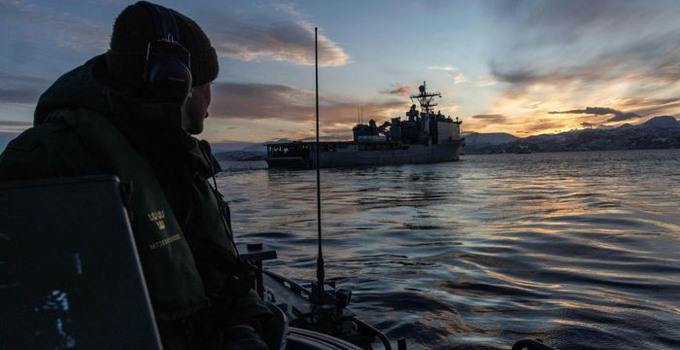
2024
The emergence of a unique military perspective on urban warfare
In a recent study, Associate Professor of War Studies Anna Danielsson explores how the U.S. military’s understanding of urban warfare has developed and evolved from the mid-19th century to t...

How norms and values influence an organisation's flexibility
Organisational culture plays a crucial yet often overlooked role in how individuals and units respond to rapidly changing conditions. This is the conclusion of Mathias Wallin, who, in a new...
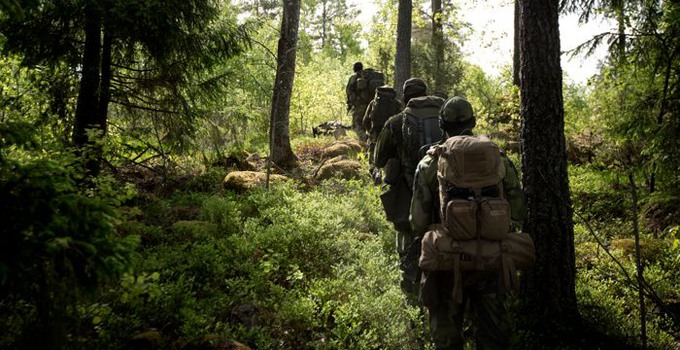
In the shadow of Russia
The anthology Russian Warfare and Influence: States in the Intersection Between East and West focuses on how the Baltic states, Belarus, Serbia, and Georgia are affected by their position...
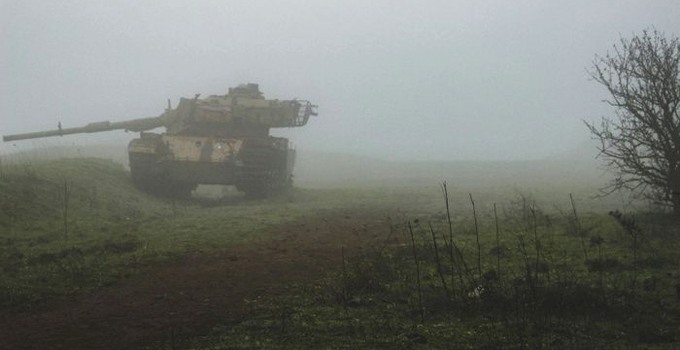
'Stability depends on US balance of power policy'
Donald Trump's policies will be crucial for the future of the rule-based liberal world order, according to Jacob Westberg. He sees risks such as isolationism, premature attempts to end the w...

US election: "I don't think he can be controlled"
Increasingly impatient voters expressed their dissatisfaction with both the economy and illegal immigration. This could be how Donald Trump's electoral victory is interpreted, according to p...

"The new american right is a radical reassessment of conservative ideas"
In an article published in the scientific journal International Affairs , Stefan Borg analyses the new American right that has emerged in the United States over the past eight years.
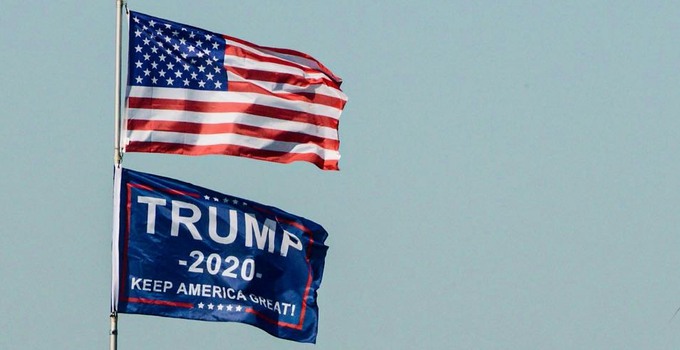
Female cadets' strategies for managing their role in the Swedish Armed Forces
Today's female cadets hold a stronger position than previous generations of women within the Swedish Armed Forces, but they still need to employ various strategies to manage their minority s...
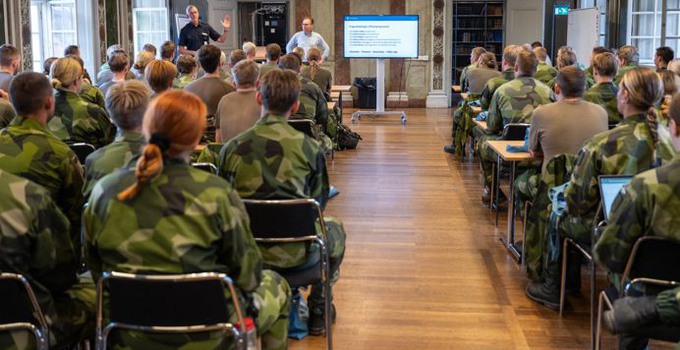
"Some units experience significantly more accidental shots than others"
Every year, several accidental discharges occur within the Armed Forces, sometimes with a fatal outcome. By scanning the safety culture, some of these accidents could be prevented, according...
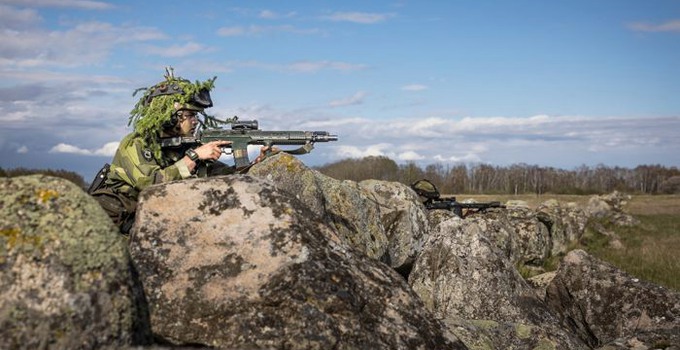
Focus on external actors' military strategies
To understand how military interventions affect the dynamics of civil war, intervention strategy needs to be studied in particular, according to a new thesis from the Swedish Defence Univers...
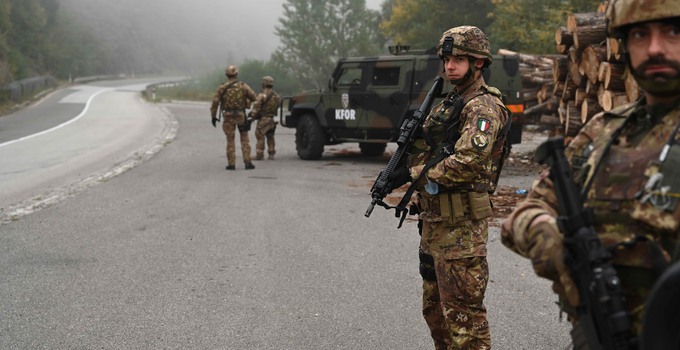
New doctoral thesis analyzes how wargaming functions
In his thesis, Patrik Hulterström explores how wargaming can enhance learning and military training. Among other contributions, he has developed a framework that can be used to analyze warga...
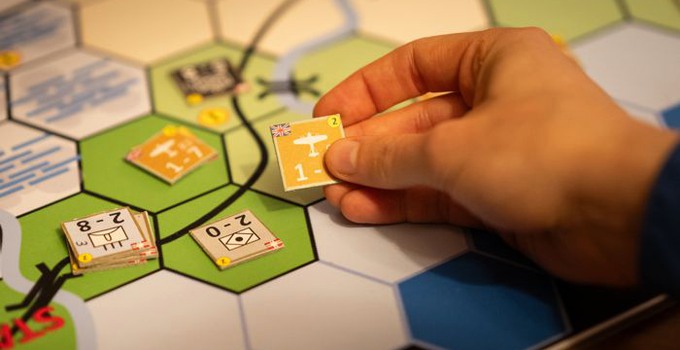
How civil-military collaboration affects Swedish total defence
The construction of Swedish total defence introduces tensions and conflicts largely attributable to differing views on how total defense should be implemented, according to a new PhD thesis...
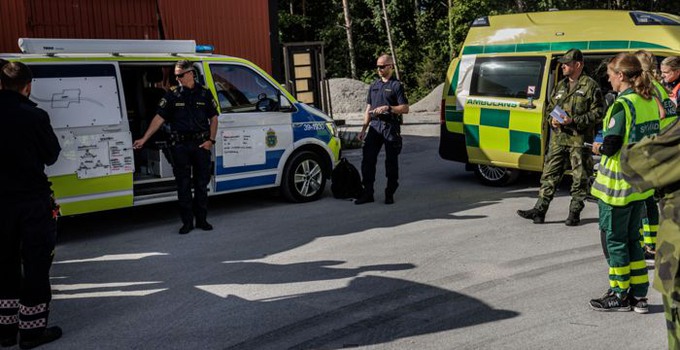
Why is civil-military collaboration challenging?
In an article recently published in the scientific journal Defence Studies , researchers at the Swedish Defence University explore the factors that hinder civil-military collaboration in t...
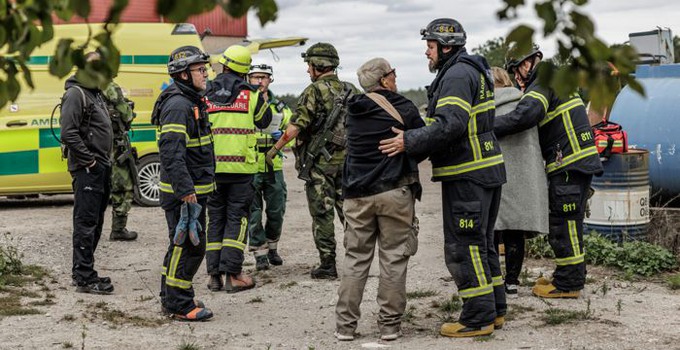
The academisation of officer education in focus
In a new scientific article, Sebastian Larsson examines the development of Swedish officer education since the 19th century, focusing on its academic aspects. "Over time, we can see how ac...
.JPG)
Civil-military joint exercises are ineffective
Researchers at the Swedish Defence University have examined whether exercises intended to promote civil-military collaboration lead to improved cooperation. "The results show that the exerc...
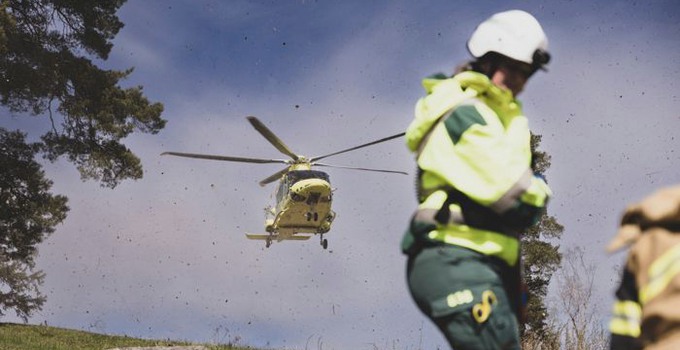
Art as a tool for transitional justice
An article recently published i Security Dialogue advocates for viewing the arts as a vital tool in understanding transitional justice as a sociocultural project that centers the everyday...

"Crisis managers would benefit from a more flexible approach"
A new study shows that crisis managers often evaluate the effectiveness of their interventions by how well they followed predetermined procedures and protocols. "These results are paradoxic...

The resilience of fighting power in the Russia-Ukraine war
In a new book, Viktoriya Fedorchak provides an analysis of the Russia-Ukraine war, using the concept of fighting power to assess the operational performance of both sides during the first ye...

What characteristics lead to high ethical competence?
A strong internal moral compass and the ability to identify ethical dilemmas are factors that characterize leaders with high ethical competence. This is shown in a new NATO report in which r...
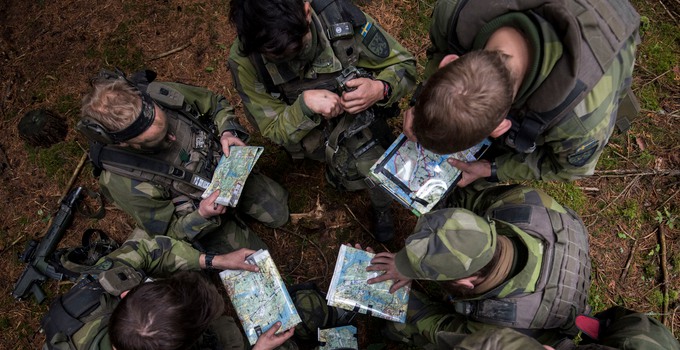
A broader outlook on environmental disasters
In his doctoral thesis, Rasmus Andrén examines the conflict dynamics that emerged in connection with the 2014 flood disaster in Kashmir. “I demonstrate that disasters can both exacerbate an...

More focus on the employee's perspective
In an article published in the Scandinavian Journal of Military Studies, researchers at the Swedish Defence University investigate how the Swedish Armed Forces' decision to reorganise operat...

More focus on the employee's perspective
In an article published in the Scandinavian Journal of Military Studies, researchers at the Swedish Defence University investigate how the Swedish Armed Forces' decision to reorganise operat...

2023
Volunteers' role in Ukraine
In the book "Slava Ukraini", Ilmari Käihkö examines the role of volunteer soldiers in Ukraine during the conflict in Donbas in 2014 and in the ongoing war against Russia.
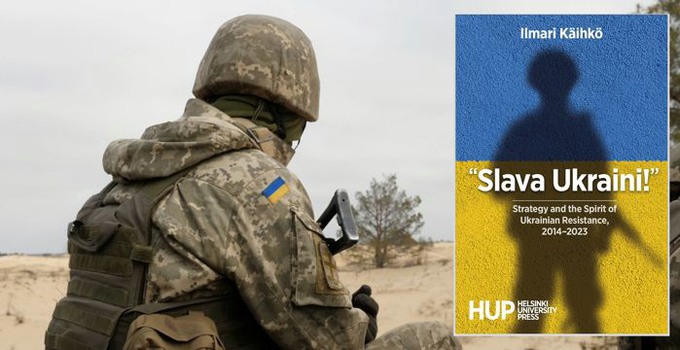
"The scarier scenario is a war on several fronts simultaneously"
Anders Ekholm researches operational art and examines the experiences of the Israeli Defence Forces. He has access to several sources in the region and is closely following the current situa...

Field studies in Ukraine provide new insights
Daniel Smith's PhD project focuses on understanding what contributes to cohesion in military units. To explore this, he has conducted interviews with soldiers and officers who have experienc...
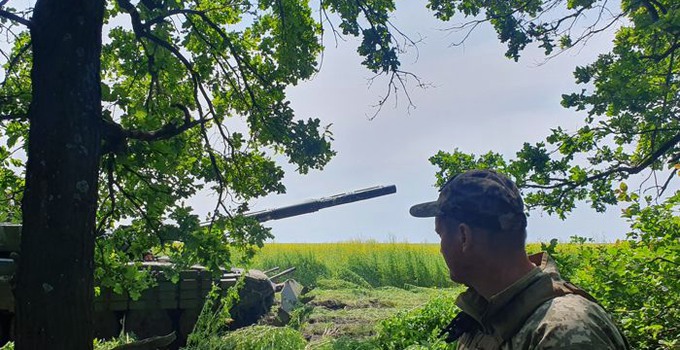
Innovative AI research about military decision support
Peter Bovet Emanuel is researching artificial intelligence (AI) and its impact on future warfare. In his research, he created two AI models for decision support. One of the models is very in...

Has the world become more unpredictable?
In his new book, Peter Haldén has studied how humanity has viewed uncertainty and insecurity throughout history. "In the wake of the surprise attacks in Israel, the war in Ukraine, and the...

The significance of anxiety for the research process
The significance of uncertainty and anxiety in the research process is explored in a new article by researchers at Stockholm University and the Swedish Defense University. The focus is prima...

Layers of resistance explain the SAF's slow gender equality efforts
The slow progress of gender equality efforts in the Armed Forces is mainly caused by resistance to change at multiple levels within the organization, according to Frida Linehagen who studied...

Gang-related crime is not a war in the legal sense
The current discussion about using the military to support police efforts in combating gang-related crime requires a full understanding of the fundamentally different functions of the milita...

Smartphones and security
In his doctoral thesis, Håvard Rustad Markussen studies how our smartphones affect democracy and security and how the phones and the companies that manufacture mobile phones and apps, are ac...

How do we respond to hostile narratives?
Using experimental studies, researchers at the Swedish Defense University are looking at how people in different countries react to information influence. "We want to better understand the...

"Our research fundamentally changes the way we understand proxy wars"
What happens when nation-states use other countries as intermediaries to distribute military support to rebel groups is far more complex than previous research has suggested. - Our study s...

"Northern Europe becomes NATO's new front"
The relationship between Russia and the West is the elephant in the room when researchers at the Swedish Defence University examine how we in Sweden and our northern European neighbours have...
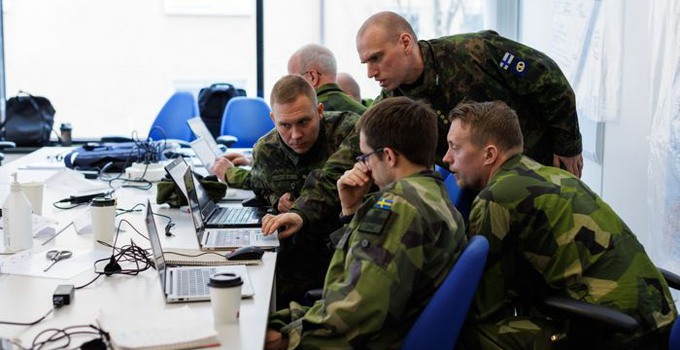
Why do Swedes consume content from Russian state-supported media?
Far from all Swedes who consume media from the Russian channels RT and Sputnik agree with the content of the narratives, and the motivations behind this type of media consumption vary greatl...

2022
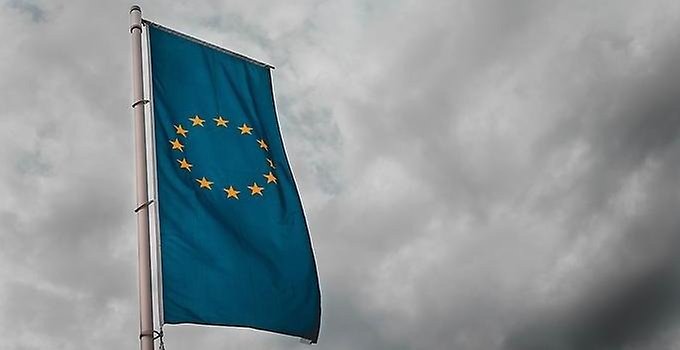
Strategy changes after NATO and EU membership
In a new book, researchers at the Swedish Defence University analyse how and to what extent eleven countries in Eastern Europe have adapted their defence strategies since joining the EU and...
Military diplomacy in the spotlight
To be commanding international military operations does not only entail the leading of soldiers. Instead, it tends to demand an expansion of duties to include the role of mediator or negotia...

The human factor in wartime targeting processes
By analysing how the ’targeting process’ - selecting, prioritising and taking action on military targets - worked for the coalition forces during Operation Iraqi Freedom, researchers at the...

Narrative-based influence operations
Influence operations can be effective even when the disseminated message is not logical or consistent with the recipient's previous experience. This is the finding of a study examining peopl...

The concept of deterrence
In his thesis Deterrence Games for the 21st Century: Representation, Theory and Evidence , Karl Sörenson takes a closer look at the concept of deterrence and examines the kind of knowledge...

How scientific ideas are reflected in practices of war
The second edition of Antoine Bousquet’s book The Scientific Way of Warfare: Order and Chaos on the Battlefields of Modernity describes how scientific thinking and ideas are reflected in...

"We need leaders who see and care about us"
Leaders are tested in times of crisis. A prime example is Ukraine's President Volodymyr Zelensky, whose leadership style has drawn widespread praise. "He has a transformational leadership...
%20Zelenskyj-yohan-marion-unsplash.jpg)
Younger men more engaged in Russian information influence
Men and younger people are clearly over-represented in terms of who consumes and distributes content from the Russian-supported news channels RT and Sputnik. Those who follow RT and Sputnik...

A keen interest in the military’s political influence
From terrorism to saving lives in the Mediterranean. Associate Professor Chiara Ruffa’s research can be described as broad, but a common theme throughout is civil control of the military. Th...
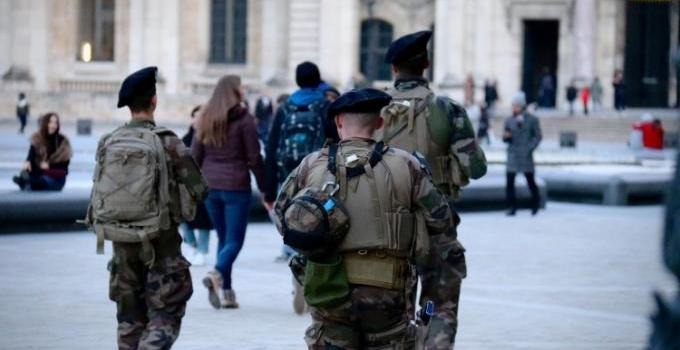
2021
Next generation warfare from a Swedish perspective
Alastair Finlan, professor of War Studies at the Swedish Defence University, is currently conducting a study into the nature of future warfare, from a Swedish standpoint. His primary focus i...
%20taylor-vick-M5tzZtFCOfs-unsplash-680x350.jpg)
Resilience and disaster risk reduction
In the book Resilience in the Pacific and the Caribbean: the Local Construction of Disaster Risk Reduction Simon Hollis examines why international development projects on disaster risk re...

Imagining the consequences of creeping crises
The book Understanding the Creeping Crisis explores different forms of the creeping crisis phenomenon, with recent examples from, among others, the handling of the Covid-19 pandemic. "W...

Japanese women's views on safety
In a study published in the Social Science Japan Journal , researchers from the Swedish Defence University investigate how women in three Japanese interest groups view security and securit...

Difficult start in professional life for new officers
In a study published in the journal Armed Forces and Society, researchers at the Swedish Defence University investigate how newly graduated officers and specialist officers experience joinin...

Why do megaprojects fail?
Projects in the multi-billion class that involve a large number of actors at different levels are becoming increasingly common. In his dissertation Lars Löfgren shows that concepts such as c...

Narcissism theory contributes to the understanding of great powers
Can great power politics be understood with the help of ideas taken from research on narcissism and narrative psychology? Linus Hagström is of this opinion, and in a recent article defines f...

”This opens the scope for questioning and rethinking”
Claudia Baisini’s PhD thesis in Philosophy explores the relation between language, observation and understanding, which in turn influences action.

Soft power shapes world politics
Stephanie Winkler’s PhD thesis explores how the concept of soft power has developed over time and shaped world politics. "I show that academic concepts not only describe the reality, but th...

Family networks as a part of the political order
In his book ‘Family Power: Kinship, War and Political Orders in Eurasia 500-2018’, Peter Haldén examines how stable political systems have been dependent on family networks and on the idea o...

In Russian media Sweden is depicted most negatively of all the Scandinavian countries
There are great differences in how the Russian news organisation Sputnik depicts the Scandinavian countries. Sweden stands out and is described much more negatively than neighbouring Norway,...

Men and women view security differently
Women tend to link security issues like terrorism, military power and crime to personal safety whereas men to a greater degree link security to threats to the state and society. Concurrently...

